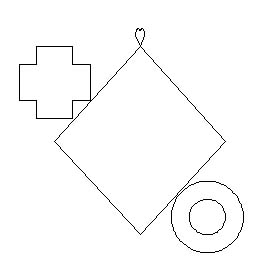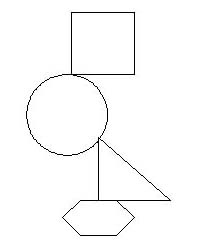 |
| http://www.edutopia.org/resource/checking-understanding-download?utm_source=twitter&utm_medium=socialflow |
I am happy to share with you my collection of resources. This blog contains information for students, parents, teachers, special education resource teachers, student support & program services staff,and administrators. Please add your thoughts and/or ideas in the comment section and share my blog with others!
Blog Archive
- July (1)
- June (2)
- May (1)
- April (1)
- March (1)
- December (1)
- October (3)
- May (1)
- March (1)
- January (1)
- November (3)
- October (2)
- August (1)
- July (2)
- June (1)
- May (5)
- April (8)
- March (1)
- February (4)
- January (1)
- December (5)
- November (17)
- October (30)
- September (22)
- August (9)
- July (13)
- June (16)
- May (6)
- April (13)
- March (9)
- February (11)
- January (9)
- December (20)
- November (19)
- October (33)
- September (32)
- August (24)
- July (37)
Showing posts with label Assessment. Show all posts
Showing posts with label Assessment. Show all posts
Thursday, November 5, 2015
53 Ways to Check for Understanding
Great ways to verify what students have learned! Edutopia shares 53 Ways to Check for Understanding. Take a look at the strategies suggested!
Wednesday, May 13, 2015
53 Ways to Check for Understanding
Edutopia provides a list of 53 Ways to Check for Understanding. You will find quick and easy strategies to verify what students have learned. Some examples include Mind Maps, Comic Book, Podcast, You've Got Mail! Check it out!!
 |
| Google Image |
Monday, January 19, 2015
Digital Media Exit Cards
Edutopia shares examples of what a digital media exit card might look like in Hit the Mark with Digital Media Exit Cards. These are excellent ways to assess what the students are learning!
 |
| Hit the Mark with Digital Media Exit Cards. |
Sunday, November 2, 2014
Safe Classroom Communication
The app called Remind is a free and safe way for teachers to text students and parents. Students and parents can receive reminders, homework, assessments and motivational messages directly to their phones.
http://www.freetech4teachers.com/2012/05/use-remind-101-iphone-app-to-keep.html#.VFbXWlPF800
http://www.freetech4teachers.com/2012/05/use-remind-101-iphone-app-to-keep.html#.VFbXWlPF800
Monday, October 27, 2014
25 Quick Formative Assessments for a Differentiated Classroom
Judith Dodge gives examples of 25 Quick Formative Assessments for a Differentiated Classroom.
Classroom Use: Examples of how the following can be used as formative assessments:
 |
| Google Image |
- Summaries and Reflections
- Lists, Charts, and Graphic Organizers
- Visual Representation of Information
- Collaborative Activities
Monday, October 13, 2014
How to Determine A Student's Prior Knowledge
Edudemic provides a few tips on How to Determine A Student's Prior Knowledge in order to get everyone on the same page.
 |
| http://www.edudemic.com/a-students-prior-knowledge/ |
Wednesday, October 1, 2014
Differentiated Assessment
Click here to enjoy our Differentiated Assessment Presentation!
Thanks Gina and Naomi for allowing me to share!
YouTube
Thanks Gina and Naomi for allowing me to share!
YouTube
Monday, September 29, 2014
Student Profile: A Google Survey
 |
| Google Images |
Create your Student/Class Profile using Google Survey.
With the click of a few buttons you can develop a
student /class profile that can be easily accessed on
your Google Drive!
Thursday, September 11, 2014
Differentiated Assessment
Differentiated assessment is the ongoing collection of data before, during and after instruction to better facilitate learning. Click here to find examples of differentiated assessment (formative pre-assessment tools, assessment during the learning, formative assessment after the learning, and summative assessment). More examples of 25 Quick Formative Assessments for the Differentiated Classroom.
 |
| Google Image |
Monday, April 14, 2014
Assessment Through the Student's Eyes
Rick Stiggins states that "rather than sorting students into winners and losers, assessment for learning can put all students on a winning streak" Assessment Through Student's Eyes gives us a good look into how to cultivate a classroom of winners.
 |
| Google Images |
Monday, March 31, 2014
Activities for Assessing Prior Knowledge
Learning progresses primarily from prior knowledge. "Constructivism proposes that new knowledge is constructed from old. It holds the educational belief that as teachers, it's essential that we make connections between what new is being presented with students' prior experiences" (Edutopia, 2011).
Are you Tapping into Prior Knowledge Often Enough in your Classroom? provides activities for tapping into knowledge.
Are you Tapping into Prior Knowledge Often Enough in your Classroom? provides activities for tapping into knowledge.
 |
| Google Images |
Thursday, March 27, 2014
The Importance of Feedback
Here is a great activity to test your feedback skills:
have the group reflect on how their 'listening' was better when they sought feedback from the speakers. Drive home the fact that to work effectively in groups feedback is essential.
The feedback figure
This feedback game is used to demonstrate the value of checking whether you heard correctly.
This training game is played in pairs. It is played in two rounds. The seating for this training game are pairs of chairs are placed around the room giving the participants the room to spread out. The chairs have their back to each other. So when participants are seated they will have their backs to each other.
In the pairs one of the participants is assigned the letter name A and the other is assigned the letter name B.
All the 'A's in this training game are given the following figure on a paper. 

The 'B's in this training game are given an empty sheet of paper and a pen or a pencil. This is the first round. The 'A's are expected to communicate to 'B' the figure in their hands so that the 'B's are able to draw an exact replica on the sheet given to them.
In this round of the feedback game a constraint is introduced. The 'B's are told not to speak while playing this round of the training game. They have just to listen and draw according to the instructions by 'A'.
After everybody has finished playing the round the 'B's share their version of the figure with the 'A's. Very rarely does anybody get the figure right. There's quite a bit of laughter at the copies of the figure that the 'B's have made.
In the next round of this feedback game the 'A's are given a second figure. This time the 'B's are given the opportunity to speak and check with the 'A's about any instructions that they did not understand. After, they have finished, the 'B' show their figures. In this step of the listening game they discover that except for a couple of mistakes all the reproductions are similar to the above figure
This time the 'B's are given the opportunity to speak and check with the 'A's about any instructions that they did not understand. After, they have finished, the 'B' show their figures. In this step of the listening game they discover that except for a couple of mistakes all the reproductions are similar to the above figure
 This time the 'B's are given the opportunity to speak and check with the 'A's about any instructions that they did not understand. After, they have finished, the 'B' show their figures. In this step of the listening game they discover that except for a couple of mistakes all the reproductions are similar to the above figure
This time the 'B's are given the opportunity to speak and check with the 'A's about any instructions that they did not understand. After, they have finished, the 'B' show their figures. In this step of the listening game they discover that except for a couple of mistakes all the reproductions are similar to the above figure
Feedback games: Debrief of this training game - 'feedback figures game'. Using the questions:
'How do you feel?' and 'What are you learning?'
Monday, March 24, 2014
Tuesday, February 18, 2014
Ten Takeaway Tips for Critical Thinking
We often talk about how important it is for our students to develop critical thinking skills in order to be literate learners. Edutopia provides Ten Takeaway Tips for Critical Thinking.
 |
| Google Images |
Wednesday, January 29, 2014
5 Ways Technology is Helping Your Child do Better in School
 |
| http://socialsteak.com/2014/01/23/5-ways-technology-is-helping-your-child-do-better-in-school/# |
See 5 Ways Technology is Helping Your Child do Better in School for further Details.
Thanks for sharing this information, Mario!
Friday, January 24, 2014
Flubaroo -Grading Made Easy
 |
| Google Image |
Flubaroo allows you to grade online assignments in one easy step. You can generate a report or analysis of student performance. If you wish results can be communicated to students by email.
Monday, December 23, 2013
Authentic Assessment
This video is an overview of Authentic Assessment and also provides rationale for its use in Special Education.
YouTube
YouTube
Monday, November 11, 2013
27 Ways to Check for Understanding
"Checking for understanding is the foundation of teaching", according to Teacher Thought. Some of theses assessments can be performed in 90 seconds or less.
 |
| http://www.teachthought.com/teaching/27-simple-ways-check-understanding/ |
Friday, November 1, 2013
Wednesday, October 16, 2013
Teaching Gifted Students in the Regular Class
"Teaching Young Gifted Children in the Regular Classroom" is an article from ERIC Clearinghouse on Disabilities and Gifted Education. There is information about identifying giftedness, recognizing
gifted behaviours, portfolios, creating a learning environment, allowing for flexible grouping and assessing and documenting.
You may also wish to see the Gifted and 21st Century Learning categories.
 |
| Google Images |
You may also wish to see the Gifted and 21st Century Learning categories.
Subscribe to:
Posts (Atom)

